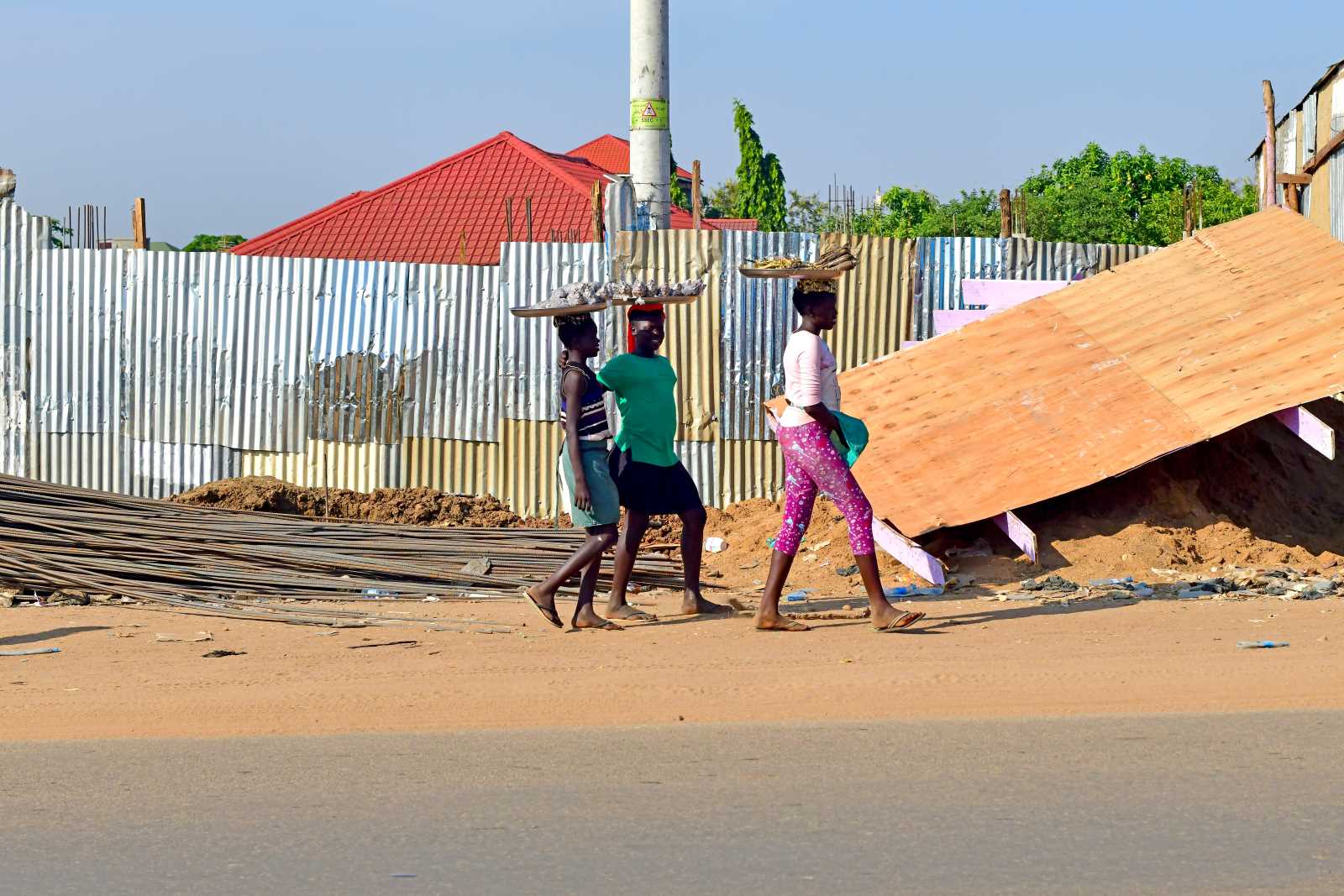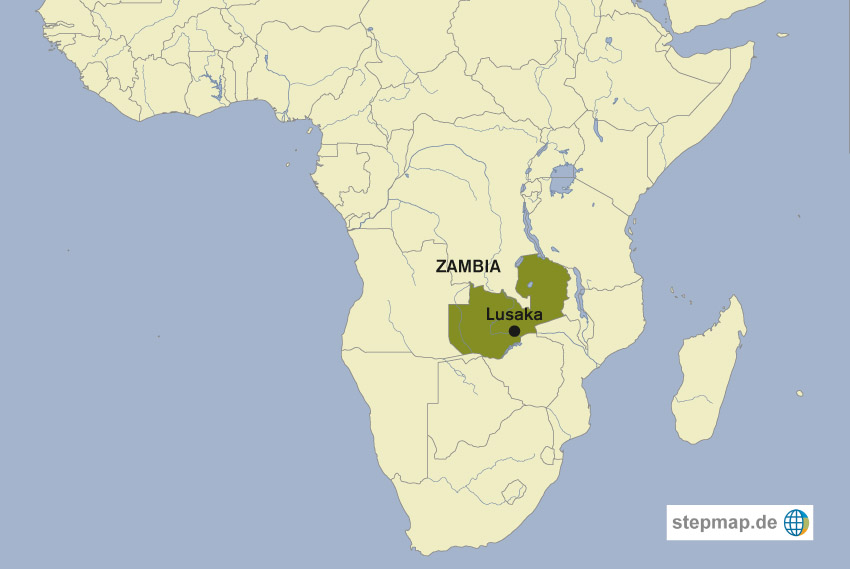IT industry
Fighting Coronavirus with a computer game

Where are you working right now?
I am at my office in Accra. I work quite often at the office because we have very good conditions here. I have fast internet, a generator, all the stuff we need. But apart from me, almost nobody is here. All my staff works from home. Everybody is invited to come and work at the office, but it is not mandatory. If you are able to do your work remotely and deliver, then I am fine with wherever you work. But I do not want to hear that the power was off, or that there was no internet. If you cannot work properly from home, you have to come to the office.
Is this a new workflow or was it like this before the Covid pandemic?
No, before Corona everybody worked at the office though we worked remotely with our Kenyan teams. But a lot has changed. From one day to another, we were forced to work from home. So we set up the whole team in a virtual environment and we use collaborative and communication tools like Miroboard, Skype, Discord and Slack. Now all the work and communication goes on remotely and we have a perfect work environment. Actually, we even work more efficiently than before the pandemic. We had not been able to monitor people and it was harder to supervise them onsite in some cases. Now that is all possible. I do not know why we did not work like this earlier, it is perfect for us. I used to say, God made Covid happen for the gaming industry! For our industry, it is important that everybody knows how to operate a computer. This happened due to Covid. Even my grandmother and my aunties now know about computers and Zoom. For the first time, I played online games with my mother in the village.
But was it all positive for you? Were there no setbacks in your business?
Oh, yes – there were. In the beginning of Corona, the first six to seven months it was really tough. We generate 90% of our revenue from funding of non-governmental organisations (NGOs). We develop games for clients – serious games like health education (as I told you in a previous interview for www.dandc.eu). When Covid-19 started, all of our clients stopped their funding. They needed time to restructure. So that hit us hard. We had to let a lot of our employees go, we went through hard times of not having any revenue. So we had to beat ourselves up, finding new businesses. But our clients started to come back and our business normalised again. We were even asked to set up an educational game for Covid behaviour. It is a trivia game in the form of “Who wants to be a millionaire” that we launched on our trivia game platform The Hottseat. Players have to answer questions on Covid. Now, we are fully back at the same level as in pre-Corona times and we are growing. We have a core team of 15 to 20 workers for all the projects, full-timers are around 10. The rest are freelancer and interns who join us.
Did you get any Corona support from your government?
No, not at all. There were recovery programmes and the government said, that they allocated some funding for entrepreneurs. I didn't apply due to how complicated it was to get these funds. My wife, who runs a weaving factory for traditional kente cloth and employs 17 weavers, applied twice. She never got an answer.
What else changed in your company due to the pandemic?
We were not sure whether we should keep our office, because we have a lot of empty space including a big hall, that we did not use anymore. But it is still important to have a physical place for personal meetings. And we found a great new purpose for our hall. We are actually converting it into a training facility where we coach trainees in game development. That is starting to kick off. We have even completed our first training with women in animation. We got a small grant from an organisation called ScaleUp Africa with MasterCard Foundation. They wanted us to train women, because women lack job opportunities and there are very few women in game development and in the tech industry in general.
That sounds promising. Last time we spoke, you expressed your regret that there is not enough training for game developing and computer science in Africa. Is this a first step to change matters?
Yes, it is definitely. The course was going quite well. Our approach is that we want to add value to existing skills. For example, if you like to draw pictures, we try to teach you how to create a comic for a video game. If you like to programme computers, we show you how to do the coding for games. There are many different steps in the process of creating a game.
How did it work out with your female trainees?
We had 30 women who applied. 20 of them were active throughout the course and 15 graduated with certificate. Teaching women is the same as men; there is no difference. If a lady is interested in programming she is good in that, if she is interested in art, she does that. We plan to work together with three of the 15 graduates. That is perfect for us. The idea is that we eat from our own farm. The next course will start in October. So now we are setting up a team of instructors. I did the first course myself, but I do not have the time for it anymore.
Will it be a training for women only again?
I think it will be mixed. But I am tempted to make a next course again only with women. But there are so many more men interested than women. Let me tell you an example: When we advertised for the first course, we asked for women to apply – and yet, we had 90 % male registration. I think one of the reason is, that gaming started with masculine representation. Women often cannot identify with the characters. In most games, women are sexist projections of men. We are trying not to stereotype our characters. We have women of all different shapes in our game universe. But it will take some time to change matters. And positive affirmation may help. So we think about a scholarship for women.
Besides promoting women, what are your goals?
We want to train as many people as possible in video gaming. And we want to contribute to the challenge in Africa to create jobs for the youth. We want to expand the skills of young people and we try to get partners who can absorb the work force. We are also trying to establish a lot of different opportunities for gamers in Africa. We are joining together under a canopy named “Pan-African gaming group” which currently is made of 10 game studios across Africa with the same vision to transform the African gaming industry. We also want to connect entrepreneurs. We have just started the Gamer`s Association Ghana officially with around 250 participants in our WhatsApp group.
The main business of Leti Arts are educational games for NGOs. But you are also working on your own computer games like Africa’s Legends, where African superheroes are the main characters. What other games are you planning?
In the last months, we created a lot of new games, one game is called Puzzle Scout, that is going to be out soon. You are collecting writings across Africa, connect them to chapters and in the end of the game you have built a book. As with our Africa’s Legends we want to raise awareness for our history. We are teaching about Ghana, how the British invaded it and how it became independent. Everything we create has a connection with our initial idea to teach history. For that, we are partnering with one of the big museums in Africa, the Pan African Heritage Museum in Accra which is scheduled to be open in 2023. They will be responsible for the historic content. We also have a new game with one of our superheroes, it´s called Karmzah Run and we are upgrading our African Legends. But still, we are looking for a major investor who will fund a few of that projects.
Eyram Tawia is CEO and co-founder of Leti Arts.
info@letiarts.com













